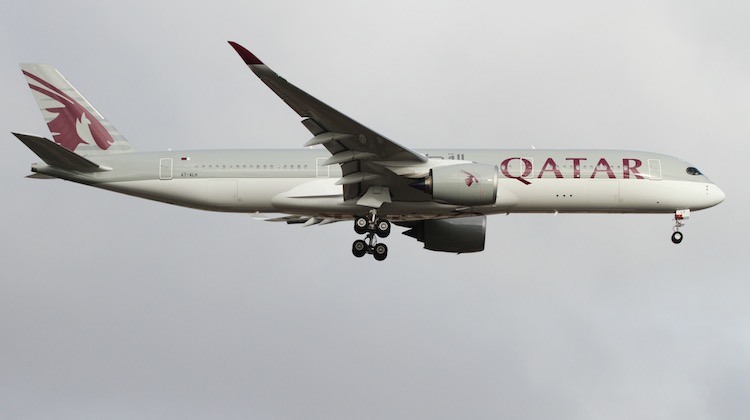
Qatar Airways has bought a 9.61 per cent stake in Cathay Pacific, citing the Hong Kong-based carrier’s “massive potential” for the future.
The Doha-headquartered airline has acquired the 378,188,000 shares in Cathay Pacific from Kingboard Chemical Holdings Ltd, which is listed on the Hong Kong stock exchange.
Kingboard Chemical said in a statement to the Hong Kong exchange on Monday it sold its shares in Cathay Pacific for HK$5,162,266,000 (A$865.3 million), or HK$13.65 per share. Cathay Pacific shares were at HK$12.68 in morning trade in Hong Kong on Monday.
Qatar Airways chief executive Akbar Al Baker said the airline was pleased to have bought a stake in Cathay Pacific.
“Cathay Pacific is a fellow oneworld member and is one of the strongest airlines in the world, respected throughout the industry and with massive potential for the future,” Al Baker said in a statement.
The transaction is Qatar Airways’ fourth investment in a foreign airline group. It holds 20 per cent in International Airlines Group (the parent company of Aer Lingus, British Airways, Iberia and Vueling), 10 per cent of LATAM Airlines Group and 49 per cent in Italian carrier Meridiana.
Earlier in 2017, Qatar had planned to buy into American Airlines, but the idea was dropped after the US carrier expressed little enthusiasm for the deal.
Qatar would be the third-largest shareholder in Cathay Pacific once the transaction is completed. The bulk of Cathay Pacific stock is held by two major shareholders – Swire Pacific Ltd owns about 45 per cent, while Chinese flag carrier Air China owns about 30 per cent.
Cathay Pacific chief executive Rupert Hogg described Qatar as “one of the world’s premier airlines.
“We already work together closely as fellow members of the oneworld alliance and we look forward to a continued constructive relationship,” Hogg said in a statement on Monday.
Qatar and Cathay Pacific have worked together previously on the Hong Kong-Doha route.
Cathay Pacific began flying to Doha from its Hong Kong hub in March 2014, joining Qatar Airways on the route. The two carriers codeshared on each other’s services between the two cities, with Cathay also placing its CX airline code on Qatar-operated services beyond Doha to points in Europe, the Middle East and South America and Qatar adding its QR airline code on selected Cathay-operated flights to Australia, Japan, New Zealand and South Korea.
However, Cathay discontinued its Doha service less than two years later, saying at the time it was for “commercial reasons”. It also removed its CX code from Qatar-operated flights beyond Doha.
Cathay is currently working through a transformation, or cost-cutting drive as part of efforts to turn around a first half loss for calendar 2017.
Cathay, and others, have battled the rapid international expansion of Chinese airlines and the ongoing rise of Middle East carriers offering long-haul to long-haul connections through their hubs, which have bitten into previously lucrative markets.
In particular, the rapid growth of Chinese carriers on international routes has reduced the number of passengers from China transiting through Cathay’s Hong Kong hub.
And at the budget end, Asian-based low-cost carriers have won passengers happy to pay lower fares for a no-frills product on short- and medium-haul routes.
Further, the economic slowdown – both in China and elsewhere – had led to a significant reduction in premium corporate travel in business and first class, particularly on long-haul routes.
Under new chief executive Rupert Hogg, Cathay has sought to regain lost ground through an overhaul that included a reorganisation of the business, hundreds of staff layoffs and other cost reduction efforts.
Kingboard Chemical, an investment company with interests in the manufacturing of laminates, printed circuit boards, chemicals and magnetic products, as well as property development and investment, said it would book a HK$800 million gain from the sale to Qatar.




